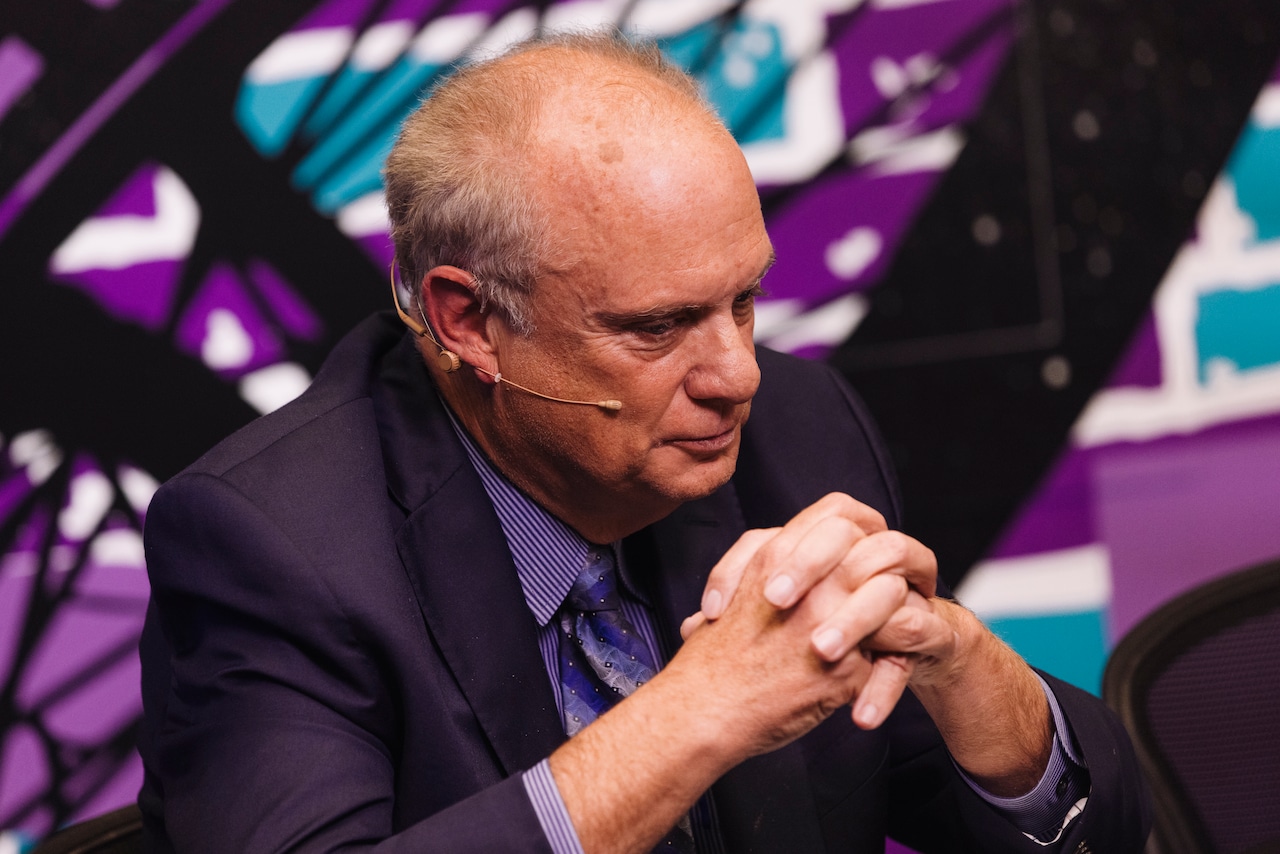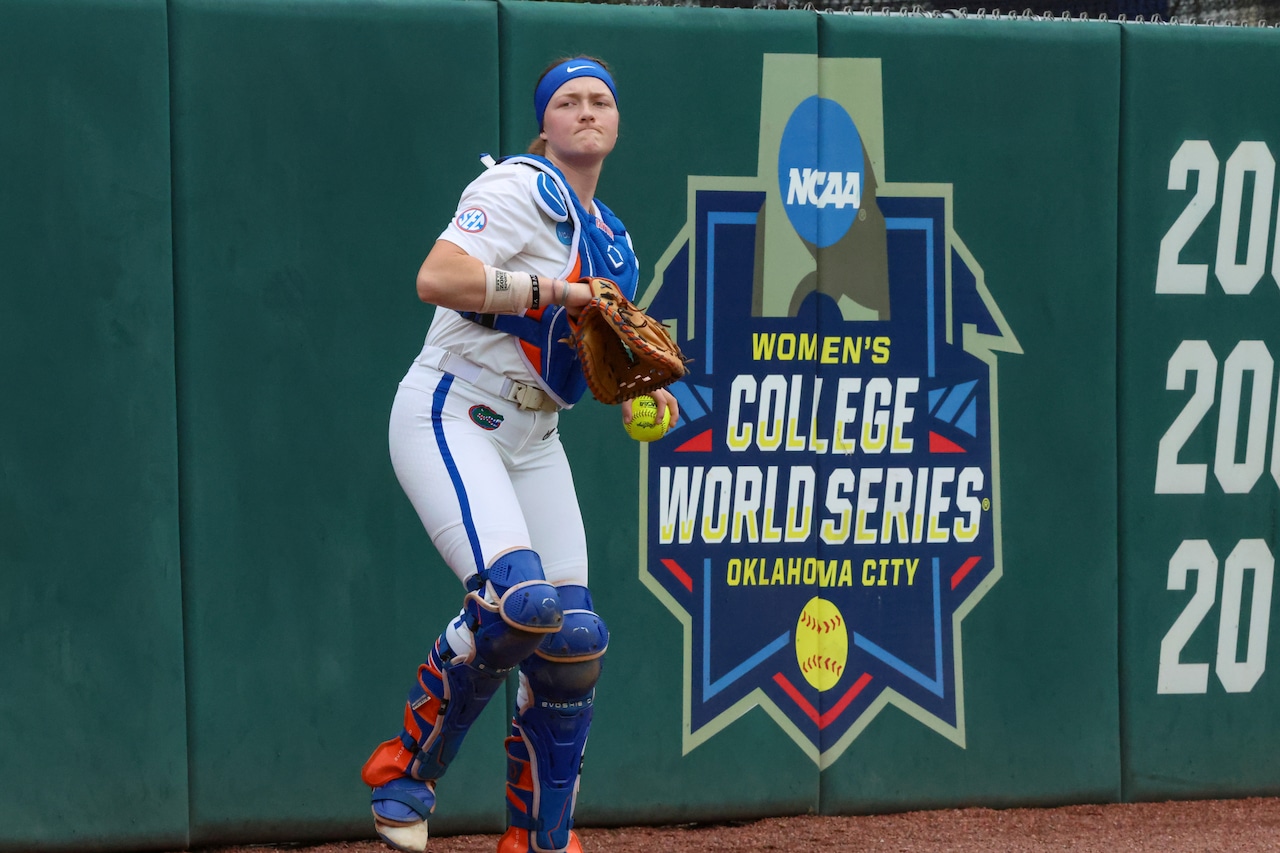“They’re betting that we’re either going to just shut the f**k up and, you know, remain in our place. All the talent that comes in here who’s Black and vocal, they either quiet down or they leave.”
That’s how the character of Julia Johnson explained the racial workplace inequities in the fictional UBA newsroom on a recent episode of the Apple+ TV original series The Morning Show. The episode, titled “White Noise,’’ highlights the racial pay gap at UBA as well as corporate racism broadly after a data leak reveals employee salaries, performance reviews, and emails. The episode mirrors recent headlines about inequities Black folks face in the workplace across industries every day, including in media and tech companies.
In 2020, the LA Times and Tribune Publishing agreed to pay $3 million to settle a class-action lawsuit brought by a multiethnic group of journalists who alleged that they were paid less than their white male counterparts.
(Editor’s note: Daric L. Cottingham was previously employed by the L.A. Times)
Last year, a 2022 survey of unions representing Gannett-owned news organizations in New York State revealed that the median salary for journalists of color in those shops was $11,500 less than their white counterparts, according to Poynter.
In July, Axios obtained data from a union representing employees at Forbes magazine that roughly 60 full-time white union members “make $94,360 on average, almost $15,000 more than its eight Black members and $7,000 more than its 10 Asian members.”
More recently, a leaked spreadsheet of salary data obtained by Insider showed that full-time Google employees of Black or African descent made over $20,000 less, on average, than their white or Asian counterparts.
In an industry where people of color represent only a small minority of the workforce, there have been countless reports in recent years of Black employees languishing under white newsroom managers who allow racist microaggressions to run wild, the vast majority of which never make headlines.
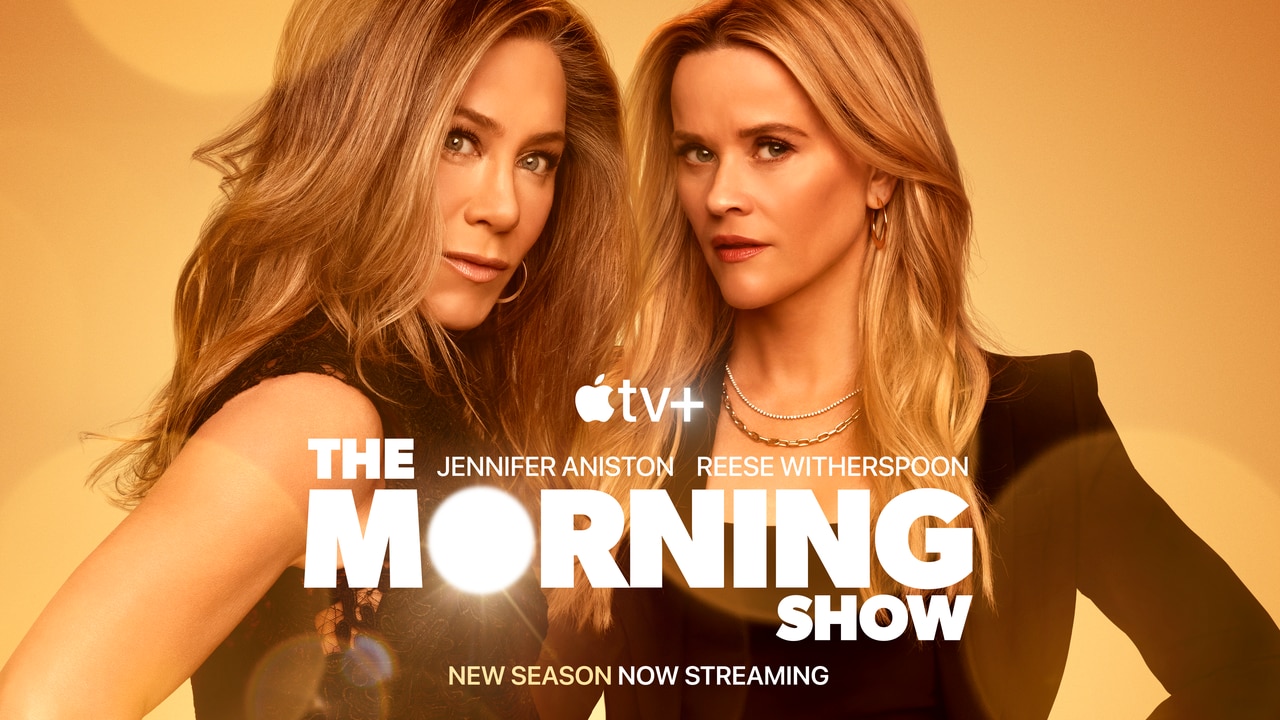
The highly anticipated third season of “The Morning Show,” starring and executive produced by Jennifer Aniston and Reese Witherspoon, premieres globally on September 13, 2023 on Apple TV+.
The “White Noise” episode of The Morning Show reflects these themes, including one scene in which a Black Olympian turned anchor (Nicole Beharie as Christina Hunter) is called “Aunt Jemima” over email when discussing her hire by the company president, Cybil Richards (Holland Taylor). That same email chain also reveals that UBA hired Chris at a lower salary than the white woman, Bradley Jackson (Reese Witherspoon), whom she was replacing as anchor.
Throughout Chris’ hiring process, she was the most cue-tested anchor in the show’s history and endured countless strategy discussions about her hair. Black women professionals have long fought battles about having agency to wear their hair how they choose, which has resulted in lawsuits and Crown Act legislation in several states.
Dr. John P. Higgins, a media critic, professor, and diversity, equity and inclusion consultant, said the episode alludes to the fact that newsroom managers often “only see us as worker bees.”
“There is this [notion] that people inherently think that Black people are not qualified to do anything, but it’s not even just the fact that we’re (allegedly) not qualified; it’s that they don’t even see the value of us in a space,” Dr. Higgins tells Reckon.
“White Noise,” offers a glimpse into how working while Black shows up across each level of the company, from on-screen talent and junior staff to mid-level management. Through Beharie’s character, we see how it takes being a Black public figure for a company to engage in minimum damage control.
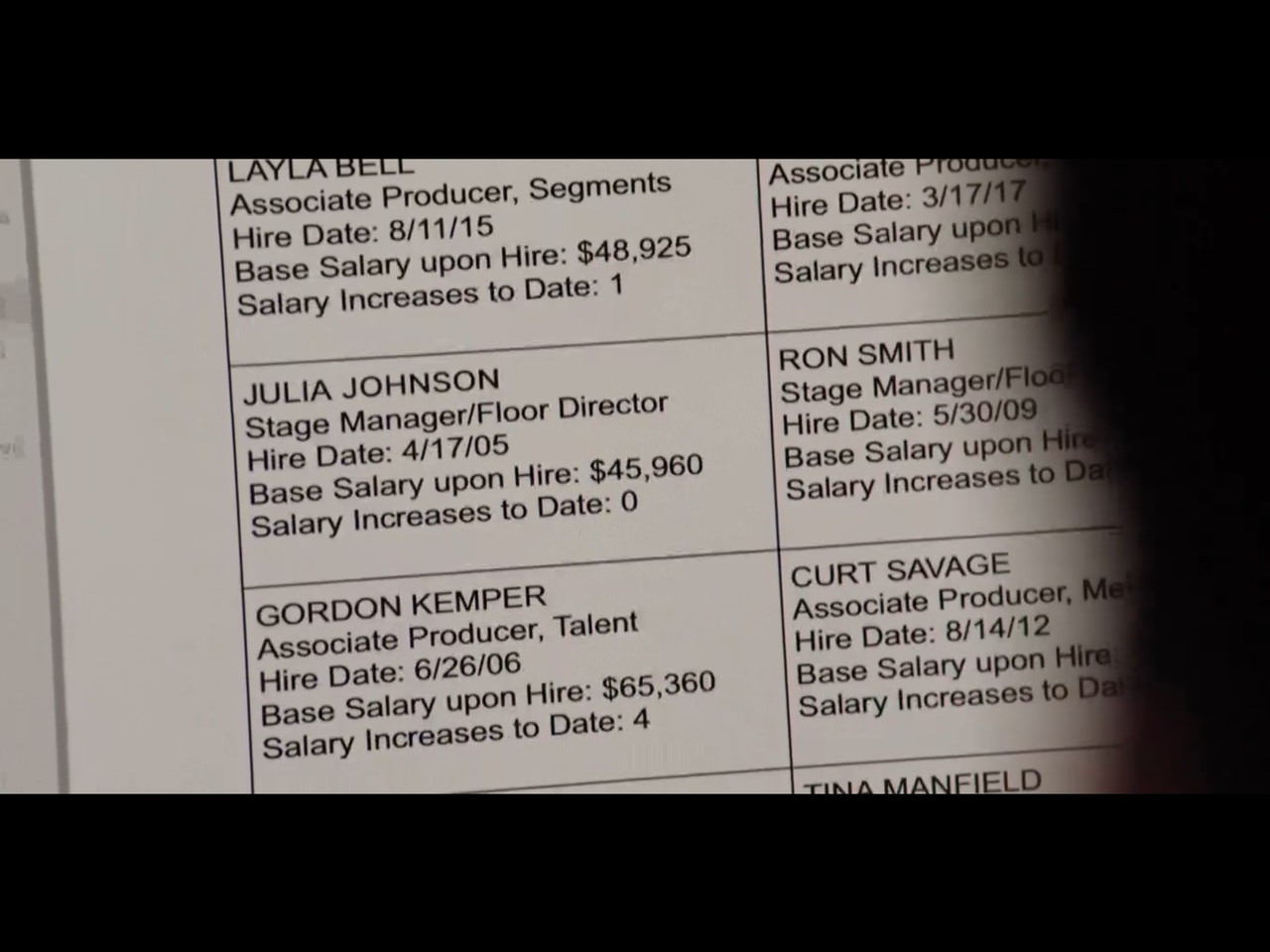
Leaked employee salary data in “The Morning Show,” now streaming on Apple TV+.
Meanwhile, two characters on the junior staff level — Layla Bell (Amber Friendly), an associate segment producer, and Julia Johnson (Shari Belafonte), a stage manager/floor director — depict the lack of advancement opportunities.s. For example, the data leak reveals that Julia has not received a raise in the two decades she’s been with the company. Similarly, show producer Mia Jordan expresses frustration over how little power she has as a manager to address race-based pay disparities.
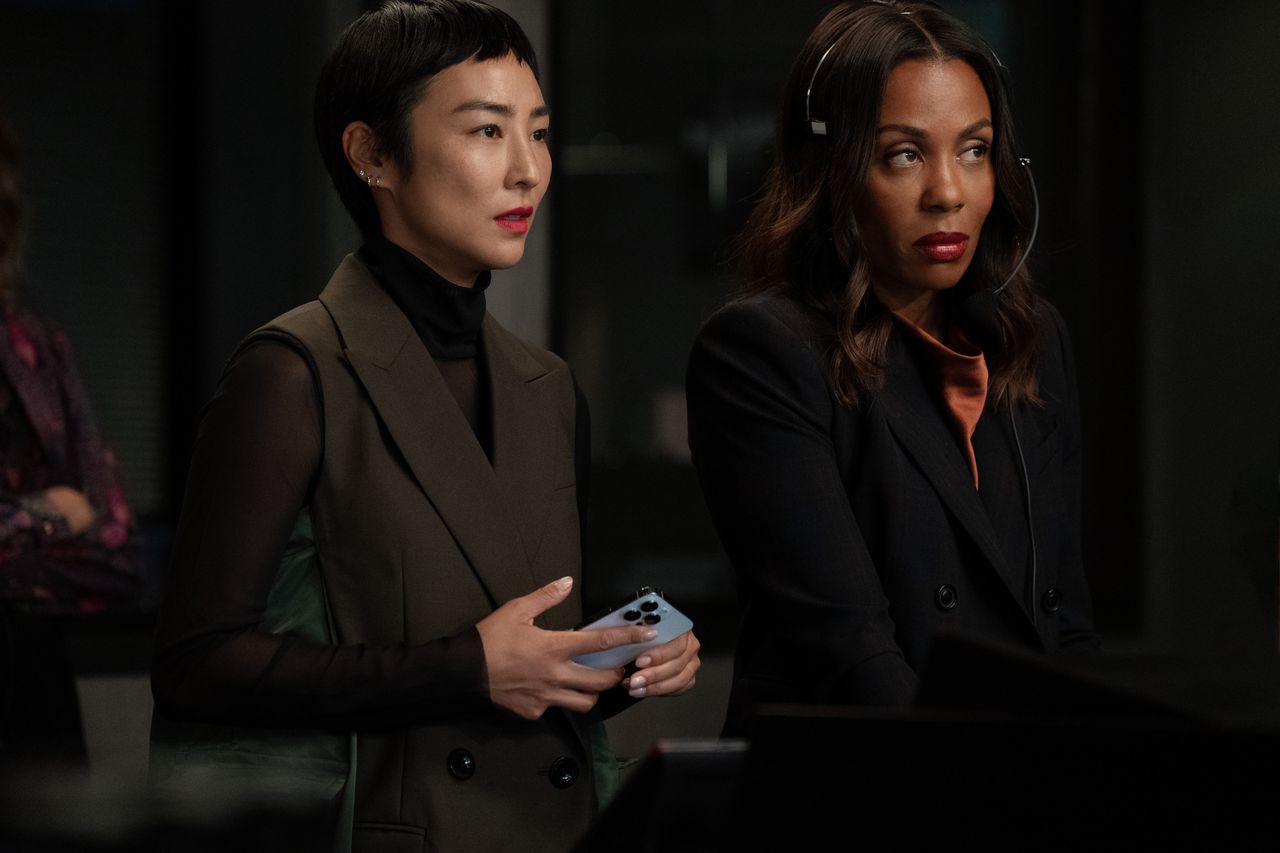
Greta Lee (Stella Bak) and Karen Pittman (Mia Jordan) in “The Morning Show,” now streaming on Apple TV+.
The show even highlights how poorly management often addresses these glaring issues, in some cases asking employees of color to clean up the messes their white bosses made.
According to Dr. Higgins, this was the worst way to handle these employee concerns, and UBA should have conducted an equity audit to address these issues from a qualitative standpoint.
“I’ve done a multitude of equity audits for companies. I will turn around and tell them these are the top five things that are in terms of a SWOT analysis (strengths, weaknesses, opportunities, and threats). And one of [UBA’s] biggest threats right now is that the Black folks at your company don’t feel safe to talk to you about anything. That scene was a great example [however], of how unsafe Black and brown people feel in corporate spaces,” Dr. Higgins tells Reckon.
“The world loves to make it seem like all we ever do is talk about race. All you ever do is bring up racism [or] injustice. But I [must] do that because the world constantly reminds me that I’m Black—every minute of the day. I’m reminded that I’m not wanted here and should be grateful,” says Dr. Higgins.
Although “White Noise’ ‘has a powerful (if unlikely) climax of a sit-down interview between Chris, the journalist, and Cybil, UBA’s president, that feels satisfying, Dr. Higgins suggests employees advocate for themselves long before a dramatic showdown is necessary.
“Researching the company you are interviewing for is the first step; Google, ask around, and ask yourself, ‘Do I want to work for a company with this type of history?’ There’s so much that goes into it,” says Dr. Higgins.
Still, they tell Reckon that the biggest thing is to ask the right questions before signing a contract, or you’re ready to start job searching if the job will not give you the pay you want.
The things Dr. John P. Higgins recommends always to ask a company:
- What does equity mean/look like for your company?
- How do you put numbers behind the experience someone has?
- How do you make sure that metric is equitable?
- How are you showing that through pay raises, promotions, etc.?



